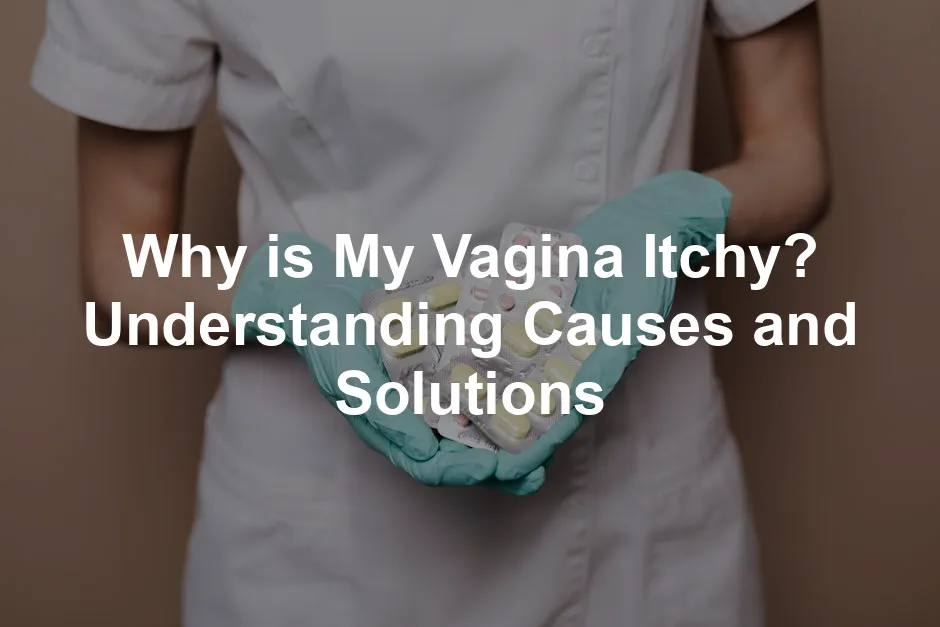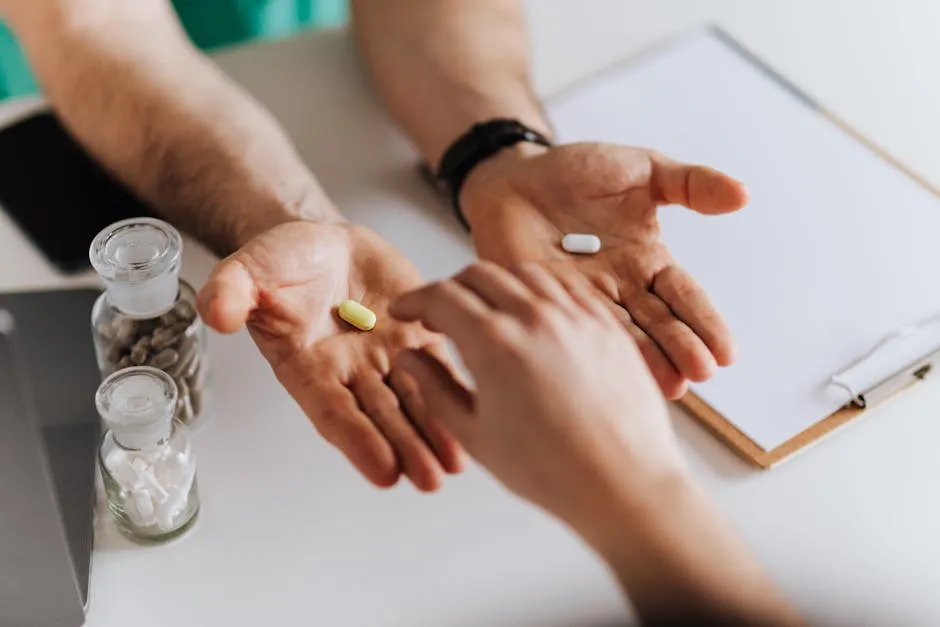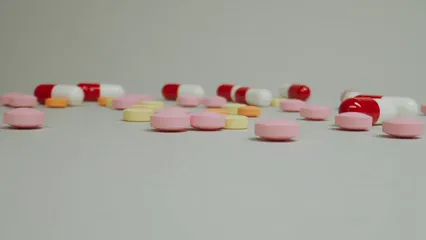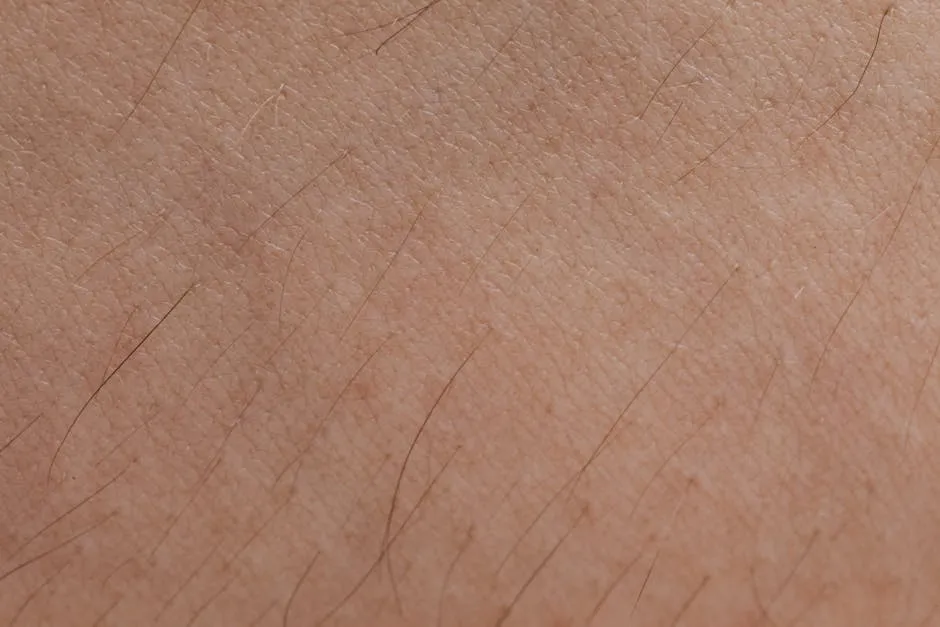
Why is My Vagina Itchy? Understanding Causes and Solutions
Introduction
Vaginal itching is a common concern for many women. It can occur for various reasons, ranging from irritation to infections. Understanding the root cause is essential for finding relief and effective treatment. Itching often signals an underlying issue that needs attention.
Summary and Overview
Vaginal itching refers to discomfort in the genital area. This sensation can lead to significant physical and emotional distress. Many women experience feelings of embarrassment or anxiety related to their symptoms. Identifying the cause of the itching is crucial for proper management and treatment. In this article, we will discuss potential causes, symptoms, treatment options, and when to seek medical advice.
Causes of Vaginal Itching
Irritants and Allergens
Common irritants like soaps, detergents, and feminine hygiene products can lead to discomfort. Some women may have allergic reactions to materials like latex or certain fabrics. Symptoms usually include redness, swelling, and persistent itching. It’s often helpful to switch to fragrance-free products and breathable fabrics to alleviate irritation.

Consider using scent-free soap to help maintain a healthy balance and prevent irritation. Your skin will thank you, and you can breathe easy knowing you’re keeping it clean without the added fragrance drama!
Infections
Yeast Infections
Yeast infections happen when there’s an overgrowth of Candida fungi. Symptoms often include intense itching, burning, and thick, white discharge resembling cottage cheese. Factors like antibiotics, hormonal changes, and diabetes can contribute to these infections. If you suspect a yeast infection, over-the-counter antifungals may provide relief.
For a quick fix, consider picking up Clotrimazole Antifungal Cream. It’s like having a superhero in a tube, ready to tackle that pesky yeast infection and restore your comfort!
Understanding the various causes of vaginal itching can empower you to take appropriate actions. If symptoms persist, please consult a healthcare professional for personalized advice and treatment options.
Bacterial Vaginosis (BV)
Bacterial vaginosis (BV) is a common condition caused by an imbalance of bacteria in the vagina. Unlike yeast infections, BV usually features a thin, grayish discharge and a fishy odor, especially after sex. Symptoms may include itching, burning during urination, and discomfort.

Risk factors for BV include having multiple sexual partners, douching, and using certain contraceptives. BV is not classified as a sexually transmitted infection but may be linked to sexual activity. It’s essential to recognize BV early, as untreated cases can lead to complications, particularly during pregnancy.
Sexually Transmitted Infections (STIs)
Several sexually transmitted infections can cause vaginal itching. Common STIs include chlamydia, gonorrhea, and genital herpes. Chlamydia and gonorrhea often present with mild or no symptoms, making them easy to overlook. However, they can lead to serious complications if untreated.
Symptoms of STIs can vary but often include unusual discharge, burning during urination, and pelvic pain. If you suspect an STI, seek medical advice promptly for diagnosis and treatment.
Hormonal Changes
Hormonal fluctuations can lead to vaginal dryness and itching, especially during menopause or pregnancy. Low estrogen levels can cause thinning of the vaginal walls, resulting in discomfort and irritation. This condition is known as vulvovaginal atrophy.

During pregnancy, hormonal changes may increase sensitivity and lead to itching. It’s important to discuss any symptoms with your healthcare provider to explore appropriate treatments and relief options. You might also want to consider using a natural vaginal moisturizer to soothe dryness and restore comfort during these times.
Skin Conditions
Various skin conditions can contribute to vulvar itching. Eczema, psoriasis, and lichen sclerosus are common culprits. Eczema appears as a red, itchy rash, while psoriasis can cause scaly patches on the vulva.

Lichen sclerosus may lead to white patches and significant discomfort. Diagnosis often involves a physical examination and sometimes a biopsy. Treatment typically includes topical steroids to reduce inflammation and relieve symptoms.
Other Causes
While many cases of vaginal itching stem from common issues, some less common causes deserve attention. One such cause is vulvar cancer. Though rare, persistent itching can indicate this serious condition. Symptoms may include changes in the skin or unusual discharge. Early detection is crucial for effective treatment, so it’s important to consult a healthcare professional if concerns arise.

Another less frequent culprit is neuropathy. This condition affects nerve function and can lead to sensations of itching or discomfort in the vaginal area. If you experience unexplained symptoms, seek evaluation to rule out underlying issues.
When to See a Doctor
Knowing when to visit a doctor is vital for your health. If your itching is persistent, or if you notice unusual discharge, it’s time to take action. Severe discomfort or irritation during activities like urination or intercourse is also a sign to consult a healthcare professional.

During your appointment, expect a thorough medical evaluation. The doctor will ask about your symptoms, medical history, and possibly perform a pelvic exam. They might collect samples for further analysis, ensuring a proper diagnosis and tailored treatment.
Treatment Options for Vaginal Itching
Home Remedies
Home remedies can provide relief for mild itching. One effective method is a baking soda bath. Simply add a few cups of baking soda to warm water and soak for up to 40 minutes. This can soothe the skin and reduce irritation.
Another helpful strategy involves probiotics. Incorporating foods like yogurt with probiotics into your diet can promote healthy vaginal flora. Additionally, maintain proper hygiene by washing with plain water and wearing breathable cotton underwear. Avoid irritants like scented soaps and douches to keep discomfort at bay.

These simple yet effective home care strategies can significantly alleviate itching and promote overall vaginal health.
Over-the-Counter Treatments
When dealing with vaginal itching, over-the-counter (OTC) treatments can be a helpful first step. Common options include antifungal creams like miconazole and hydrocortisone cream. These are effective for yeast infections, which are a frequent cause of itching. Hydrocortisone cream can also provide relief from mild irritation and inflammation.

However, it’s essential to approach OTC treatments with caution. What works for one person may not be suitable for another. Always read the instructions carefully. If you’re unsure, it’s wise to consult a healthcare provider before trying these medications. This ensures you choose the right option for your specific symptoms.
Prescription Medications
For more persistent or severe cases of vaginal itching, prescription medications may be necessary. If a healthcare provider diagnoses a yeast infection, antifungals like fluconazole tablets may be prescribed. Bacterial vaginosis requires antibiotics, such as metronidazole or clindamycin, to restore healthy bacterial balance.
In cases of sexually transmitted infections (STIs), antibiotics specific to the infection will be necessary. Conditions like genital herpes may require antiviral medications for management.

For women experiencing itching due to menopause, hormonal treatments may help. Local estrogen therapy can alleviate dryness and discomfort caused by decreased hormone levels. Always discuss treatment options with a healthcare provider to find the most effective solution for your symptoms.
FAQs
What should I do if my vagina is itchy?
If you experience vaginal itching, start by maintaining good hygiene. Gently wash the area with warm water and avoid scented products. Wear breathable cotton underwear. If itching persists for more than a few days or is accompanied by unusual discharge, consult a healthcare professional. They can provide a proper diagnosis and treatment plan.
Can certain foods cause vaginal itching?
Yes, some foods can trigger vaginal itching. Dairy products, sugar, and refined carbs may promote yeast overgrowth. Additionally, allergies to certain foods can cause irritation. If you suspect food might be the culprit, keep a food diary and consider discussing it with a healthcare provider.
Is it normal to experience vaginal itching at night?
Experiencing vaginal itching at night can be common. This may happen due to increased blood flow or sweat during sleep. Conditions like pubic lice can also cause itching, especially at night. If itching disrupts your sleep or worsens, seek medical advice.
How can I maintain vaginal health to prevent itching?
To maintain vaginal health, practice good hygiene. Wash the area with warm water and avoid douching. Wear loose, breathable clothing and cotton underwear. Stay hydrated, eat a balanced diet, and consider probiotics. Regular check-ups with a healthcare provider can help monitor your vaginal health.
What is the difference between vulvar and vaginal itching?
Vulvar itching occurs on the external genitals, while vaginal itching affects the internal canal. Identifying the location of the itching is crucial for treatment. Vulvar itching may result from irritants or skin conditions, while vaginal itching often links to infections. Understanding the distinction helps in choosing the right treatment approach.

Please let us know what you think about our content by leaving a comment down below!
Thank you for reading till here 🙂 And remember, self-care is essential! Consider grabbing a hydrating body lotion or a essential oil diffuser to create a calming atmosphere at home!
All images from Pexels




